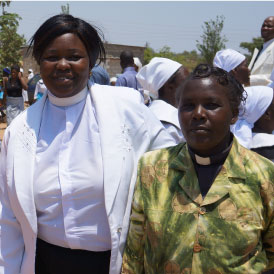ABOUT
_____________________________
_____________________________
_____________________________
_____________________________
_____________________________
_____________________________
HISTORY OF THE CHURCH
The Church of Central Africa Presbyterian Synod of Zambia traces its origin from the Livingstonia Mission of the Free Church of Scotland. The Livingstonia Mission was formed in 1874 in memory of Dr. David Livingstone who died in 1873 at Chitambo, Northern Rhodesia (present day Zambia) after his three missionary and exploratory journeys.
The first Livingstonia Mission party left Scotland for Lake Nyasa (Malawi) on 12th May, 1875. Between 1881 and 1912, the Livingstonia Mission carried out extensive evangelistic work in Northern Rhodesia (present day Zambia). As a result, the following Zambia mission stations were opened: Mwenzo (1882), Chitheba (1882), Uyombe (1889), Tamanda (1894), Kamoto (1896), Kazembe (1897), Lubwa (1904), and Chitambo (1907). Stations were later also opened at Chasefu (1922) and Lundazi (1962). The first Presbytery of the Livingstonia Mission was constituted in 1899. This Presbytery was composed of all the Livingstonia Mission congregations found in the northern region of Malawi and north eastern and central Zambia.
The outcome of the evangelistic work by Livingstonia Mission of the Free Church of Scotland and the Dutch Reformed Church of South Africa was the formation of the Church of Central Africa Presbyterian (CCAP). It is composed of five Synods. Livingstonia in Northern Malawi and Blantyre in Southern Malawi-offspring of Livingstonia Mission- formed CCAP in 1924. The two were joined by Nkhoma in Central Malawi- child of Dutch Reformed Church- in 1926. Harare in Zimbabwe became a synod in 1965; presbyteries in Zambia were given the status of a synod in 1984. Offices of the CCAP General Assembly are located Lilongwe, Malawi.
When the Synod of Zambia was constituted in 1984, the CCAP Church in Zambia had four ordained ministers, 16 congregations, 2 Presbyteries (Chasefu and Midlands/Copperbelt) and fewer than 10,000 communicants.
As of August 2010, the Synod has 67 congregations in eleven presbyteries, 58 ordained ministers and 9 evangelists with a membership of more than 65,000. The Synod of Zambia began a diploma training program in Chasefu in eastern Zambia in 2007 with 16 students. That program is continuing.
Church growth is supported by organized house groups (sections), preaching stations (prayer houses), congregations, presbyteries and Synod. The Synod organizes evangelism out-reach campaigns with the help of the Men's Guild, Women's Guild and the Christian Youth Fellowship (CYF).
The Church subscribes to the Nicene Creed, Apostles Creed, Westminster Confession, Larger and Shorter Catechism, Heidelberg Confession, Belgic Confession, the Canon of Dort and the CCAP Church Confession of Faith of 1924.
The Synod of Zambia is a member of World Communion of Reformed Churches and locally a member of Evangelical Fellowship of Zambia (EFZ), the Council of Churches in Zambia (CCZ), Theological Education by Extension in Zambia (TEEZ) and the Bible Society in Zambia (BSZ).
The Church has close relations with the Uniting Presbyterian Church of Southern Africa (UPCSA), the United Church of Zambia (UCZ) and the Reformed Church of Zambia (RCZ).
Ordination Of Women to Ministry of Word and Sacrament: The CCAP Synod of Zambia at its Synod meeting held at Lundazi CCAP Mission in August 2002, unanimously agreed to the ordination of women to the holy ministry. Kondwani Nkhoma, Synod women's worker, was licensed on the 25th August 2002 as the Synod’s first female pastor. She is now minister at Lusaka Mandevu CCAP Congregation. Rev. Kondwani Nkhoma received her theological training at Zomba Theological College in Malawi. As of 2010, T.T. Chipeta and Gertrude Nyirenda Banda have also been ordained, and Susan Nyirenda Tembo and Naomi Daka are completing theological studies. 

